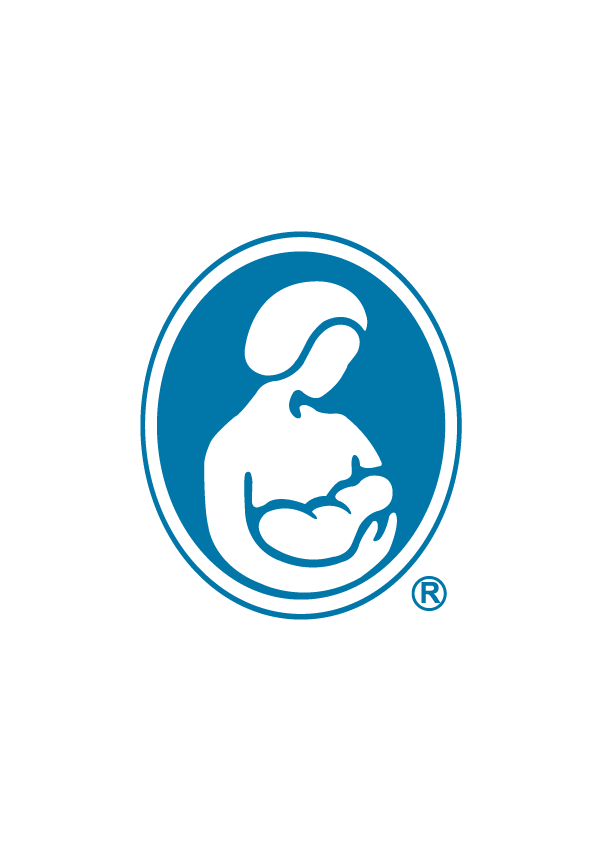Ayala Ochert 晓琳 译 Shiuh-jane, Daisy 审校
Most mothers are aware that breastfeeding boosts a baby‘‘s immune system, but few of us could say how. “It‘‘s something to do with antibodies,” we might answer vaguely. Now there‘‘s a brand of formula on the market claiming to “naturally strengthen your baby‘‘s immune system;” it also says it is “inspired by breastmilk” and “supported by science.” To understand these claims we need to delve a bit deeper into the real science of breastmilk and find out how it actually supports a baby‘‘s developing immune system.
大多数妈妈知道母乳有助于增强宝宝的免疫系统,但很少有人能道出个中缘由,只能以一句“是抗体在起作用”模糊作答。现在市场上出现了这样一款婴儿配方奶,号称“受母乳启发”,且“有科学依据”,能够“自然地增强宝宝的免疫系统”。要想真正弄懂这种说法,我们需要更深入地挖掘正确的母乳科学知识,找出其有助于宝宝免疫系统建立的确凿证据。
It turns out that there is much more to the story than just antibodies, important though they are. Breastmilk contains literally thousands of different components that support the immune system in some way. Some of these components are very specific, defending against a particular pathogen (bacteria, virus, parasite), while others have a broader function, protecting the baby in many different ways. Often these various components act together, providing even more protection than each would alone.
尽管抗体意义重大,但事实表明还有更多值得一提的内涵。母乳确实含有数以千计的不同成分,以各自的方式帮助建立免疫系统。其中的一些成分作用明确,用于抵御特定的细菌、病毒和寄生菌,而另一些成分则具有更广泛的功能,以多种不同方式为宝宝提供保护。通常这些不同成分联合起来协同作用,保护能力远胜单一成分孤军作战。
The brand of formula in question says it contains a “unique patented mix of special prebiotics” — sugars that are naturally found in milk and which are a source of food for so-called friendly bacteria (probiotics). Having a healthy mix of friendly bacteria in the gut is important for overall health because 80 percent of the immune system is located here, and the “good” bacteria can help to push out the “bad” bacteria that can cause disease.
上文提到的那种婴儿配方奶宣称其含有“特殊益生元专利技术”的糖类物质。益生元天然产自于母乳,同时也是所谓的有益菌的食物来源。肠道中含有大量有益菌群对身体的整体健康至关重要,因为80%的免疫系统位于肠道内,“好”细菌帮助把致病“坏”细菌排出体外。
But prebiotics are more than just food for bacteria. There are hundreds of different types of these special sugars — properly known as “oligosaccharides” — and the milk of each animal species contains a distinctive mix. (In fact, the precise mix varies from individual to individual, so each woman has her own unique blend — though not patented, of course!) After fat and lactose, oligosaccharides form the third largest solid component in human milk (the proportion in colostrum is even higher), but they used to be dismissed by scientists as just a useless indigestible by-product of milk production. Now it is clear that they actually have a very important function.
但是益生元的功用并非仅仅作为细菌的食物这么简单。这些特殊的糖类,有数百种不同的型态,像已被熟知的低聚糖,均以不同比例存在于所有动物的乳汁当中。(实际上,由于个体差异,这一比例并不固定,因此每一位妈妈具有自己的一套协调配比方案,当然就不存在什么专利之说。)位居脂肪和乳糖之后,低聚糖是构成人类乳汁的第三大固体成分(初乳中低聚糖的含量甚至更高)。然而在过去,低聚糖甚至被科学家们误解为是一种无用的难消化的母乳副产品。如今,它的重要作用终于得到了清晰明确的认识。
Human milk has been found to contain 90 different oligosaccharides forming over 900 different chemical structures, each of which can block infection by preventing a particular strain of bacteria from sticking to the gut wall. (I don‘‘t know how many oligosaccharides are found in this formula with the “patented mix,” but we can safely assume it does not contain 90 different types, in 900 different forms.) Unlike antibodies, they are able to protect a baby from bacteria or viruses that a mother has never been exposed to. What is more, oligosaccharides are just one in a class of human milk components — there are others called glycoproteins and glycolipids — that work by blocking the attachment of microbes to the cells of the gut, so preventing infection.
人奶已知含有90多种低聚糖,以900多种化学结构存在,通过阻碍特定细菌粘附于肠道壁的方式防止感染。(我不清楚上面那个专利配方的婴儿食品中含有几种低聚糖成分,但我们可以确定,它不会像母乳这样含有这么多种类的低聚糖。)与抗体不同,即便是妈妈以前没有感染过的细菌或病毒,低聚糖也能为宝宝提供保护。低聚糖仅仅是人奶所含诸多成分中的一类物质,此外,还有一些被称为糖蛋白和糖脂的物质以阻断微生物附着于肠道细胞的方式进行抗感染保护。
Human milk is relatively low in protein compared to the milk of other species, yet the primary function of two of the major proteins in milk — antibodies and lactoferrin — is not nutrition but defense against infection. Most milk antibodies are made of a special form of protein called SIgA, which is particularly resistant to digestion. A mother‘‘s milk contains antibodies to pathogens that she‘‘s recently been exposed to. Chances are the baby has been exposed to the same pathogens. These SIgA antibodies stick to microbes and stop them from attaching to and infecting cells in the gut. They also make their way into the nose and mouth, where they can defend against airborne diseases.
相较于其他物种而言,人奶蛋白质含量较低。其中含有的两种重要蛋白质──抗体和乳铁蛋白──主要作用是提供抗感染保护而非营养功效。大部分人奶中的抗体是SIgA。SIgA是一种结构特殊的蛋白质,不能被消化吸收。母乳中所含的抗体由妈妈近期接触过的抗原刺激产生,宝宝可能也已暴露于相同的抗原中。这些SIgA抗体粘附在微生物上,阻止它们依附和感染肠道细胞。抗体在鼻腔和口腔中发挥同样作用,防止经空气传播途径致病菌的侵袭。
While each antibody is specifically designed to target one particular pathogen, the major milk protein lactoferrin acts more broadly. It can directly kill bacteria, viruses, and fungi, and it also has an anti-inflammatory effect, which helps reduce the pain, swelling, and high temperature associated with infection. Because lactoferrin is quite resistant to digestion, it passes into the urine relatively unchanged and so helps prevent urinary tract infections. Lactoferrin also helps to encourage the growth of friendly bacteria in the infant‘‘s gut. Human milk contains particularly high levels of lactoferrin and, significantly, human lactoferrin is distinct from that found in the milk of other species.
虽然一种抗体只针对某一特定病菌发挥作用,具有特异性,但母乳里的主要蛋白质──乳铁蛋白的作用却更为宽广。它能直接杀死细菌、病毒和真菌,并兼具抗炎效果,能够帮助缓解由感染引起的疼痛、红肿和高热症状。乳铁蛋白不能被消化分解,因此进入小便后能帮助预防尿路感染。乳铁蛋白还能促进婴幼儿肠道内有益菌的生长繁殖。人奶中具有高含量乳铁蛋白,且与其他物种乳汁中的乳铁蛋白有显着区别,这点意义重大。
In addition to these there are many other components that are known to play a role in supporting the immune system. The list includes alpha-lactalbumin, lysozyme, lipids, milk fat globules, nucleotides, defensins, cytokines, hormones, growth factors, anti-secretory factor, leucocytes, neutrophils, macrophages, lymphocytes, and more. The more you find out about these remarkable substances, the more apparent it becomes that mother‘‘s milk is important for babies. As the research scientist David Newburg puts it: “My thinking on milk has changed totally. I used to think of it as the best source of nutrition. Now, it‘‘s looking like milk is really designed to be protective.”
除上述内容以外,已知还有许多其他成分在建立免疫系统上扮演着重要角色,如:α-乳清蛋白、溶菌酶、脂类、乳脂肪球、核苷酸、防御素、细胞因子、荷尔蒙、生长激素、抗分泌激素、白细胞、嗜中性粒细胞、巨噬细胞、淋巴细胞等等。随着越来越多的有益成分被发现,母乳对宝宝的重要性日益明显。正如科学家David Newburg所说:“我对母乳的看法已经完全改变了。以前我把母乳当作营养的最佳来源。如今看来,母乳确实是一把天赐的保护伞。”
A newborn baby‘‘s immature immune system relies heavily on this protection. Colostrum, the milk produced in the first days after birth, contains higher concentrations of many of these substances. The infant immune system matures during the first year, and is more mature at age two, but the immune system does not reach full maturity until the child is around six years old.
新生儿不成熟的免疫系统极度仰赖这种保护。婴儿出生后几天妈妈所产生的初乳含有更丰富的这些保护成分。婴儿的免疫系统在出生后的第一年开始成熟,在两岁时更加成熟,但是要到孩子六岁左右时免疫系统才能达到完全成熟。
So it‘‘s reasonable to assume that mother‘‘s milk gives a useful immune boost for as long as a child is breastfeeding. But what about once they stop? Happily, the effects of breastfeeding on the immune system continue throughout life. This is because breastmilk contains components that direct the development of a child‘‘s own immune system. For example, it was found that the thymus — a central organ of the immune system — is twice as big in breastfed infants compared with formula-fed infants at four months. The size difference was also seen at ten months. Researchers attribute the growth of the thymus in breastfed infants to two components of human milk, IL-7 (a cytokine) and leptin (a hormone). Since the thymus continues to grow throughout childhood, it seems likely that breastfeeding enhances the growth of the thymus for as long as breastfeeding continues.
因此可以做出这样的合理假设:只要孩子哺乳,母乳便有助于提升免疫力。问题来了,断奶后情况将如何?庆幸的是母乳喂养对免疫系统的贡献将终生受用。因为母乳含有的成分对孩子自身免疫系统的发育有直接影响。拿作为中枢免疫器官的胸腺来说,与人工喂养四个月大的婴儿相比,母乳喂养四个月大婴儿的胸腺是其两倍大。这种差异在婴儿十个月大时依然明显。研究者们把胸腺的这种生长归因于母乳中的两种成分:IL-7(一种细胞因子)和瘦素(一种荷尔蒙)。由于胸腺在整个童年时期持续生长,似乎只要母乳喂养持续,便有助于胸腺的发育。
The main role of the thymus is in the development of the immune system. It grows steadily in early life and then abruptly stops at puberty and starts to shrink and gradually disappear during adulthood. During those early active years, bone marrow cells enter the thymus and mature into T cells, which then spread to the rest of the body. There are several different types of T cells, all vital to the proper functioning of the immune system — one sort finds and recognizes pathogens and can kill them directly; other types of T cell can instruct other cells of the immune system to kill. Yet others have the role of directing the production of antibodies. Another vital function of the thymus is to learn to recognize the body‘‘s own tissues so that the immune system doesn‘‘t attack them, as happens in autoimmune diseases like rheumatoid arthritis, type 1 diabetes, and multiple sclerosis.
胸腺在免疫系统发展中扮演重要角色。胸腺在生命初期稳定增长,青春期停止生长,到成年时开始萎缩并逐渐消失。在早期的活跃期,骨髓细胞进入胸腺发育成熟后形成T细胞,随后扩散到整个机体。T细胞具有各自不同的类型,对维持免疫系统正常运转起到至关重要的作用。其中有一类能搜寻和识别病菌并直接将其杀死,另一类T细胞能引导免疫系统内的其他细胞消灭病菌。还有一类T细胞能够直接生产出抗体。胸腺的另一个重要作用是识别机体自身组织免于遭受免疫系统的攻击,这就是类风湿性关节炎、一型糖尿病和多发性硬化症等自身免疫性疾病的原因。
Since breastfeeding is the biological norm, and since organs of the immune system like the thymus can only develop to their full potential through breastfeeding, an inevitable conclusion must be that people who were never breastfed (or those who were weaned too early) will have deficient immune systems — not just in infancy but for the rest of their lives.
由于哺乳是生物的自然法则,免疫系统中的器官如胸腺,只能在哺喂母乳的情况下发展出它们最大的潜能,因此很难不这样推断:未曾哺乳(或过早断奶)的人没有充分发展的免疫系统──不仅婴儿期没有,往后也是如此。
From the outside, babies seem to grow well on formula — they certainly get bigger and longer. But on the inside their vital organs may struggle to grow adequately without support from mother‘‘s milk, which has evolved to meet their needs. Perhaps one brand of formula can argue that it is marginally better than another brand, but can it possibly claim to be “inspired by breastmilk” or to “strengthen the immune system”? Those are claims that the real science simply does not support.
表面上看,宝宝们在配方奶的喂养下似乎长得不错──确实是个头更大一些。但是从体内的发展来看,缺少那能满足需求的母乳的支持,那些关乎生命的器官,会耗力运作,以便让身体能充分成长。或许一个牌子的配方奶可以表明比另一个牌子的产品好,但是能宣称它“受母乳启发”或“能增强免疫力”吗?那些声称的内容实在是不被现代科学所支持。
Refer to
参考文献
Hanson, L. A. MD, PhD. Immunobiology of Human Milk: How Breastfeeding Protects Babies. Pharmasoft Publishing, 2004.

